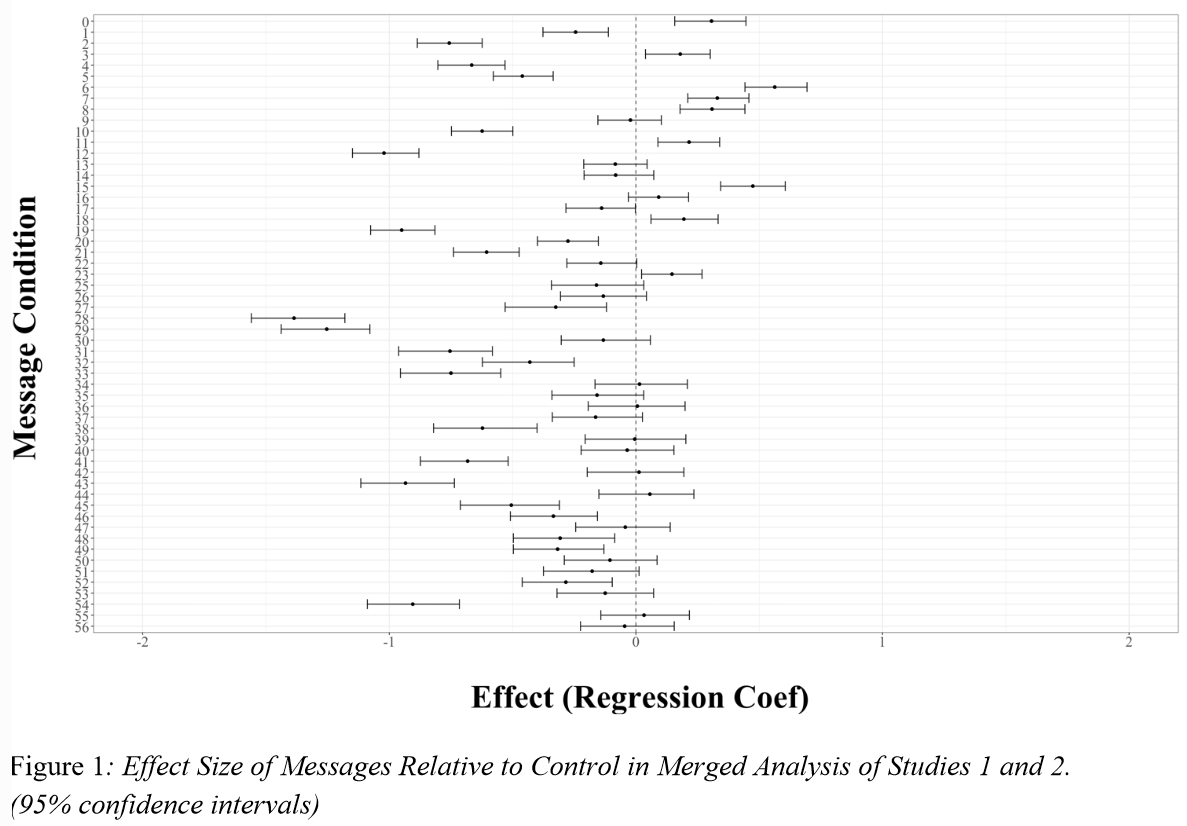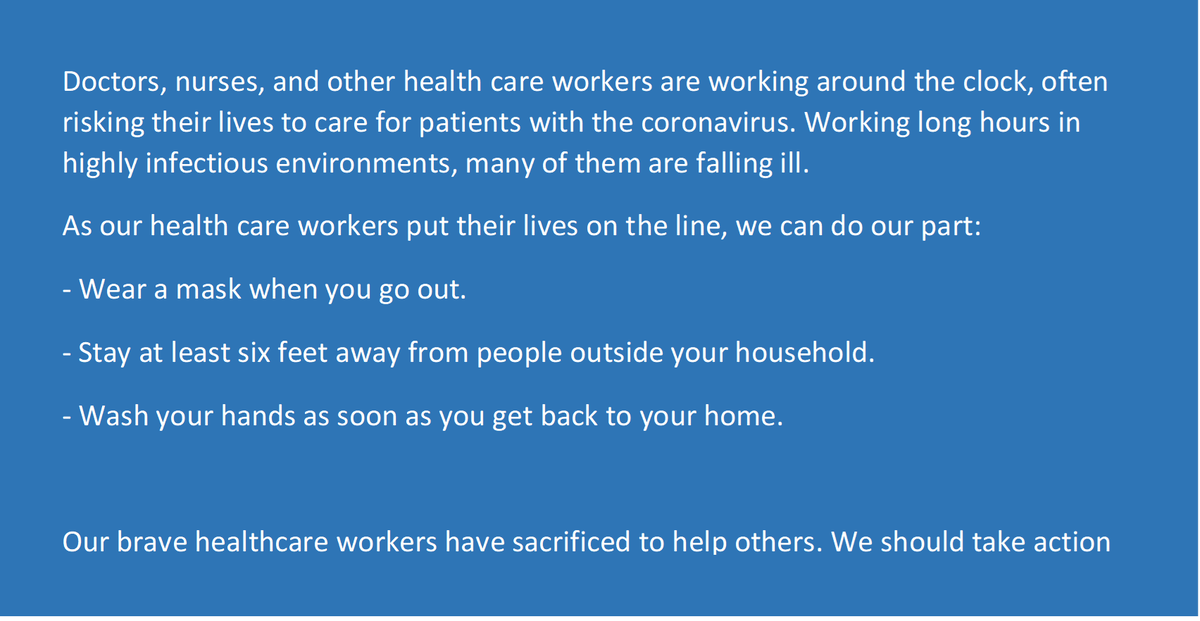How can we persuade people to comply with COVID guidelines? Results of 5 experiments (not yet peer-reviewed!)
https://psyarxiv.com/g93zw
1/12">https://psyarxiv.com/g93zw&quo...
Many efforts to encourage behavior change – PSAs, social media posts, billboards, short speeches – involve short, persuasive messages. But what types of messages are effective at convincing people to adopt COVID public health guidelines?
2/12
2/12
In 2 studies, we use persuasiveness ratings to test 56 messages. Messages were based on past research on persuasion, recent research on COVID-19 messaging, and original crowdsourcing. Participants found messages with following frames most persuasive:
3/12
3/12
- Responsibility to reciprocate healthcare workers’ sacrifices
- Exponential growth/the risk of cases suddenly spiking
- A story of a young, identifiable victim
- The need to protect vulnerable groups: sick, elderly, immune-compromised
4/12
- Exponential growth/the risk of cases suddenly spiking
- A story of a young, identifiable victim
- The need to protect vulnerable groups: sick, elderly, immune-compromised
4/12
Interestingly, participants rated many messages as *less* persuasive than a control message, including appeals to patriotism, national identity, religion, the disgusting effects of the virus, and punishments for not following guidelines
5/12
5/12
We then tested whether the top 4 messages led people who were not fully compliant with guidelines to increase their compliance intentions, compared to a null & an “active" control message in 3 between-subjects experiments (May-July).
6/12
6/12
We *did not* find consistent effects of any of the messages compared to an active control message with a simple appeal.
However, a message emphasizing civic responsibility to reciprocate the sacrifices of healthcare workers performed the best in 3 of 5 studies.
7/12
However, a message emphasizing civic responsibility to reciprocate the sacrifices of healthcare workers performed the best in 3 of 5 studies.
7/12
Central take-away is that the search for a “silver bullet” short message is unlikely to be fruitful in this advanced stage of the pandemic. In a dense information environment, changing the framing of a single, short message seems – in general - is not persuasive
9/12
9/12
We suggest further research focus on more impactful approaches, such as:
- More compelling media, e.g., video
- Multiple messages
- Delivery through one-on-one conversations
10/12
- More compelling media, e.g., video
- Multiple messages
- Delivery through one-on-one conversations
10/12
And perhaps most of all,
- Receiving messages from trusted sources, as in this study:
https://www.nber.org/papers/w27496
11/12">https://www.nber.org/papers/w2...
- Receiving messages from trusted sources, as in this study:
https://www.nber.org/papers/w27496
11/12">https://www.nber.org/papers/w2...
Big THANKS to participants in a rapid virtual conference on COVID messaging we organized in April: @mollycrockett @AndyLuttrell5 @jayvanbavel @erezyoeli @Jill_Jord @_shanetimmons @JimACEverett @falklab @danicosme @cervisiarius @PagliaroStefano @SoubhikBarari @AhmadAbuakel et al!

 Read on Twitter
Read on Twitter



